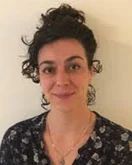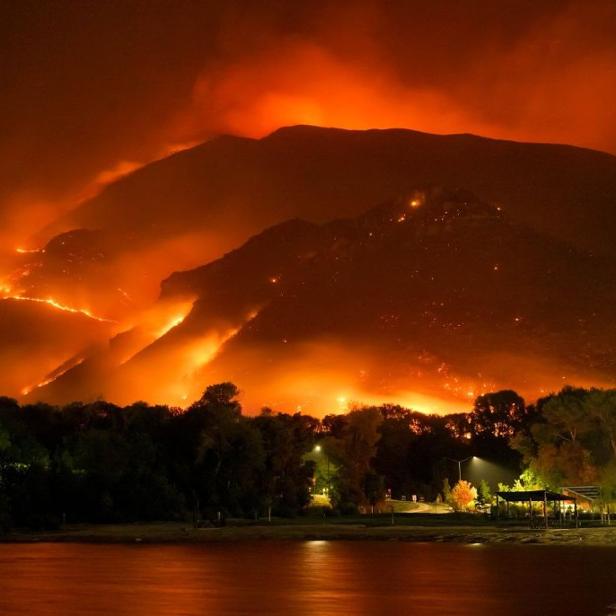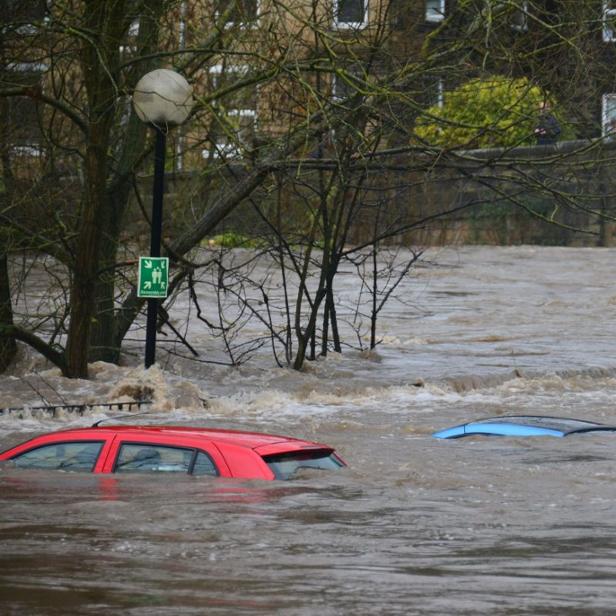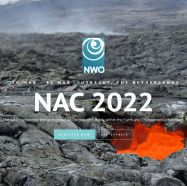 |
|
|
| View this newsletter online |
 |
Research School for Socio-Economic and
Natural Sciences of the Environment |
| SENSE e-News |
|
|
  |
Newsletter Summer 2022
30 June 2022 |
|
 |
| • |
"SENSE Advanced Sustainability Course for PhD students" second course developed with SENSE funding ›› |
| • |
COVID-19 lockdown cuts CO2 emissions throughout Europe and 40% in Amsterdam ›› |
| • |
Summer school Anthropocene, 4-8 July 2022, Groningen ›› |
| • |
Integrated Fire Management, 19-30 September 2022 (pre-announcement) ›› |
| • |
Environmental and Resource Economics - Module: Climate Economics, 3-7 October 2022 ›› |
| • |
Overview of PhD / postdoc courses July-August 2022 ›› |
| • |
Overview of recently announced PhD / postdoc courses ›› |
| • |
Netherlands Earth and Environmental Sciences Congress (NAC), 5-6 September 2022 ›› |
| • |
SAVE THE DATE: Annual IHE PhD symposium 2022 – all SENSE PhD candidates invited, 13-14 October 2022 ›› |
| • |
Overview of upcoming events August-September ›› |
| • |
Overview of PhD graduations June-August 2022 ›› |
| • |
Predatory journals and how to spot them ›› |
| • |
Spark grants Centre for Unusual Collaborations (deadline: 27 July2022) ›› |
| • |
Global Research Council (GRC) pilot call on Sustainable Development Goals (deadline: 25 August 2022) ›› |
| • |
Call for coordinators NIAS-Lorentz Program (deadline: 1 September 2022) ›› |
| • |
Call Open Competition NWO Domain Social Sciences and Humanities (SSH) (deadline: 8 September 2022) ›› |
| • |
Call SENSE Course Development (deadline: 31 October 2022) ›› |
| • |
Biodiversa+ Call on "Improved transnational monitoring of biodiversity and ecosystem change for science and society" (deadline: early November 2022) ›› |
| • |
GAIA Masters Student Paper Award (deadline: 28 November 2022) ›› |
| • |
Overview job vacancies ›› |
|
|
|
 |
 |
 |
| Editorial |
 |
| Reflection on SENSE symposium |
 This year’s SENSE symposium was held on June 2nd and it was very well received. Held in the newly constructed Omnia building in Wageningen, the symposium attracted almost 100 participants from eight Dutch universities and a wide variety of environmental topics were discussed. This year’s SENSE symposium was held on June 2nd and it was very well received. Held in the newly constructed Omnia building in Wageningen, the symposium attracted almost 100 participants from eight Dutch universities and a wide variety of environmental topics were discussed.
Philipp Patberg and Carolien Kroeze welcomed everyone to the SENSE symposium and Wageningen University & Research. After the introduction, participants attended unconference sessions on their topic of interest and engaged in open discussions. The unconference sessions led to new insights, perspectives and possibilities, making them one of the highlights of the symposium.
The second half of the morning was devoted to poster presentations so that the attendees could become more acquainted with other's work. Iris Manola led the poster session, which included 16 one-minute elevator pitches in which the presenter could briefly introduce the poster. The attendees were then given the opportunity to walk around and examine the posters in greater detail, as well as discuss them further with the presenters. A wide variety of environmental disciplines, as well as research methods and techniques, were discussed.
After lunch, the symposium continued with several parallel guest speaker sessions, giving participants the opportunity to see and hear multiple guest speakers. In the first slot, Dr. Akkermans provided valuable insights about employability and careers, while Dr. Oudenhoven explained more about how to get interdisciplinairy research published. In the second time slot, Dr. Lemmens and Dr. Prats Lopez described forms of citizen science and how this can be established, while Dr. Konkol explained the value of open science. In the final slot, Dr. Parra Paitan gave an interesting talk about her career outside academia after completing her PhD. All presentations were very well received by the audience. To have a look at the slides of the presentations, go here.
The day's insights were shared during the closing session. This was followed by a networking borrel, which allowed participants to get to know one another better. All in all, the symposium was a great success and we look forward to seeing you again at the next symposium.
Keep an eye on the SENSE newsletter and website to make sure you do not miss out on the next SENSE symposium.
Lotte van Oosterhout (VU), organiser SENSE Symposium 2022
|
|
|
 |
| SENSE News |
 |
| "SENSE Advanced Sustainability Course for PhD students" second course developed with SENSE funding |
How to develop research that integrates various aspects of sustainability? How to critically assess the inclusion of sustainability in the work of others? Where to find a network of people working on sustainability-related topics in your own field?
If you are looking for answers to these questions, our SENSE Advanced Sustainability Course is the right place for you.
This course if the second course to be developed with SENSE funding for course development. |
|
|
| COVID-19 lockdown cuts CO2 emissions throughout Europe and 40% in Amsterdam |
As COVID-19 first hit Europe in the spring of 2020, most countries, including The Netherlands, implemented strict measures to limit the spread of the virus. Human economic activity and transport in cities stopped almost instantly, and many people had to move their work from offices to homes.
The first recently published study in Science of the Total Environment by Giacomo Nicolini et al. shows that urban emissions were reduced by 5% to 87% across 11 cities and 13 measurement sites when compared to the same period in previous years. Measurements as part of the Amsterdam Atmospheric Monitoring Supersite (AAMS) showed the emissions were reduced by 40% during the lockdown and surprisingly, they remained about 30% lower for four months after the lockdown before they started to rise again. |
|
|
| SENSE blog |
 |
|
No current blogposts.
Do you want to have your own blog on the SENSE website, or do you want to write a single blog post? Please contact marjolijn.dannenburg@wur.nl. |
|
|
|
 |
 |
|
 |
 |
| Upcoming courses and discussion groups |
 |
| Summer school Anthropocene, 4-8 July 2022, Groningen |
Should the Anthropocene be recognised as an official subdivision of geological time? The proposition of this term has raised much discussion during the past decade. Is our species’ imprint visible geologically? What was the tipping point towards anthropogenic impact to such a degree that it defines a geological epoch?
In this summer school you will learn how to participate in an academic debate, how to formulate your own arguments and present these to an academic audience. Experts in different fields will present their case for the Anthropocene and share relevant insights. By exploring human imprints observed in various relevant research domains, this school will try to elucidate the essence of the debate and discuss how it relates to our current perception of human impact on the environment. |
|
|
| Integrated Fire Management, 19-30 September 2022 (pre-announcement) |

The contents of this course are currently under development. The full information and registration form will become available early July via this link: |
|
|
| Environmental and Resource Economics - Module: Climate Economics, 3-7 October 2022 |
 The course “Environmental and Resource Economics” is offered as different independent modules. The course “Environmental and Resource Economics” is offered as different independent modules.
Upcoming modules cover circular economy, climate economics, and behavioural environmental economics.What are the economic consequences of climate change? By how much should these consequences be reduced by climate change adaptation and mitigation policies? Which economic instruments are effective and efficient in stimulating a low-carbon economy and how do these instruments function? The module “Climate Economics” picks up these questions. |
|
|
| Overview of PhD / postdoc courses July-August 2022 |
- Microalgae Process Design: from cells to photobioreactors
1-8 July 2022, Wageningen
- Summer school Risk Analysis and Risk Management in Agriculture: Updates on Modelling and Applications
4-8 July 2022, Wageningen
- Summer School Theory and Practice of Efficiency & Productivity Measurement
4-15 July 2022
- Downstream Processing
4-8 July 2022, Delft
- Summer school Anthropocene
4-8 July 2022, Groningen
- Critical Tourism Studies
7-15 July
- Summer School on Circularity in the built environment
10-17 July 2022, TU Delft
- Deep Learning
11-15 July 2022, Amsterdam
- Introduction Genome-Wide Data Analysis
18-22 July 2022, Amsterdam
- Behavioral Decision Making
18-22 July 2022, Amsterdam
- Research on Productivity, Trade, and Growth
25-29 July 2022, Amsterdam
- Foundations of Data Analysis and Machine Learning in Python
25-29 July 2022, Amsterdam
- Econometrics and Data Science Methods for Business and Economics and Finance
15-19 August 2022, Amsterdam
- Summer School Modeling the Dynamics of Intensive Longitudinal Data
15-18 August 2022, Utrecht
- Insects as Feed: Interdisciplinary approach to insects as sustainable feed component
21-26 August 2022, Ede
- Reinforcement Learning
22-26 August 2022, Rotterdam
- Behavioral Macro and Complexity
22-26 August 2022, online
- Experimenting with Communication - A Hands-on Summer School
22-26 August 2022, Amsterdam
|
|
|
| Overview of recently announced PhD / postdoc courses |
- Introduction to Geo-Information Science
5 September - 22 October 2022, Wageningen
- The Choice: Un-box your PhD process & take charge of your performance
8 September, 6 October and 3 November 2022, Wageningen
- Agent-based modelling with NetLogo
19-26 September 2022, Germany
- Polder2C's Late Summer School: Fieldwork for flood resilience
26-30 September 2022, Belgium
- Environmental and Resource Economics - Module: Climate Economics
3-7 October 2022, Wageningen
- MOOC: Co-creating sustainable cities
4 October 2022, online
- Theoretical Ecology: Bifurcations in dynamical systems
10-14 October 2022, Ede
- Ethics for Social Sciences Research
13 October 2022, Wageningen
- Life Sciences Data Integration Challenge
24-28 October 2022, Wageningen
- RMarkdown
31 October - 3 November 2022
- Ethics in Plant and Environmental Sciences
7 November 2022, Wageningen
- Philosophy and Ethics of Food Science and Technology
19 January - 23 February 2023
- Biocatalysis and Protein Engineering
17-21 April 2023, Delft
- Advanced Survey Design
28 August - 1 September 2023, online
In case you are interested in either participating or teaching a course that is currently not in the programme, please do not hesitate and contact us with your suggestions. |
|
|
| Discussion groups |
| No current upcoming discussion groups |
|
|
|
 |
 |
|
 |
 |
| Upcoming Events |
 |
| Netherlands Earth and Environmental Sciences Congress (NAC), 5-6 September 2022 |
 We are happy to announce that for the first time NAC will bring together researchers from the Earth and Environmental Sciences. We are happy to announce that for the first time NAC will bring together researchers from the Earth and Environmental Sciences.
The 18th edition of NAC (Nederlands Aardwetenschappelijk Congres) brings together the research fields within the Earth and Environmental Sciences. The event aims to continue to provide a true interdisciplinary forum for discussion and for young scientists to present their research results to a broad audience. The 18th edition will be a hybrid event. Attendants can participate, in-person and/or virtually.
Registration deadline: 26 August |
|
|
| SAVE THE DATE: Annual IHE PhD symposium 2022 – all SENSE PhD candidates invited, 13-14 October 2022 |
Pre-announcement of the 16th IHE PhD symposium on 13 and 14 October 2022. The topics and contents are to be determined, but you can already safe the date!
For an impression, see the announcement of the 15th IHE PhD symposium.
Participation in the event is free of charge.
All SENSE PhD candidates are invited to participate! |
|
|
| Overview of upcoming events August - September 2022 |
|
|
|
|
| Overview of recently announced events |
| No other than mentioned above |
|
|
| Upcoming PhD graduations |
 |
| Overview of PhD graduations June-August 2022 |
- Liselotte Hagedoorn
Time is money: Valuing the benefits of nature-based solutions in a lower income context
2 June 2022, VU University Amsterdam, Institute for Environmental Studies (IVM)
- Frank van Oosterhout
Beating the Blues by Floc & Lock
3 June 2022, Wageningen University, Aquatic Ecology and Water Quality Management
- Bosman Batubara
Floods in (post-) New Order Jakarta. A political ecology of urbanization
8 June 2022, IHE Delft, Water Governance
- Tan Duoc Nguyen
Development and Validation of a Three Dimensional Wave - Current Interaction Formulation
10 June 2022, IHE Delft, Coastal & Urban Risk & Resilience
- Vera Felix da Graca Silva
Pesticide residues in EU soils and related risks
13 June 2022, Wageningen University, Soil Physics and Land Management
- Simbarashe Chereni
Understanding flood risk perceptions and motivations for damage mitigation: The case of Kampala, Uganda
22 June 2022, University of Twente, Urban and Regional Planning and Geo-information Management
- Makunga Madirisha
Flow assurance problems in the geo-energy industry: Microbial influenced corrosion, and preciptiation of clays in reservoir acid stimulation
22 June 2022, University of Twente, Applied Earth Sciences
- Dirk Oudes
Landscape-inclusive energy transition landscape as catalyst in the shift to renewable energy
30 June 2022, Wageningen University, Landscape Architecture
- Jasper Denissen
Mapping terrestrial evaporation regimes - A data-driven analysis of land-atmosphere interactions under climate change
1 July 2022, Wageningen University, Hydrology and Quantitative Water Management
- Darrell Tang
Managed Aquifer Recharge with Marginal Water for Irrigation and Contaminant Attenuation
4 July 2022, Wageningen University, Soil Physics and Land Management
- Lot van der Graaf
Sulfidogenesis at low pH and its application for treatment of metalliferous wastewaters
5 July 2022, Wageningen University, Microbiology
- David Martini
Deciphering the factors relating sun-induced fluorescence to photosynthesis and transpiration in space and time
6 July 2022, University of Twente, Water Resources
- Gustavo Garcia Chapeton
Collaborative Geovisual Anlysis
7 July 2022, University of Twente, Geo-information Processing
- Timothy Tiggeloven
Global coastal flood risk assessment
1 September 2022, VU University Amsterdam, Institute for Environmental Studies (IVM)
|
|
|
|
 |
 |
|
 |
 |
| Tips |
 |
| Predatory journals and how to spot them |
Predatory journals - also called fraudulent or pseudo journals - claim to uphold high quality standards in scientific publishing, while providing no or little editorial services at all. How do you recognize these journals?
Predatory journals aim to mislead authors into thinking they are a legitimate journal. However, these journals do not adhere to academic publishing standards and will publish anything as long as you pay the Article Processing Cost (APC). |
|
|
| Calls |
 |
| Spark grants Centre for Unusual Collaborations (deadline: 27 July 2022) |
| Spark grants aim to stimulate unusual collaborations to address societal challenges. The grants do this by offering initial financial support to start building a committed project team with whom to explore the potential of an idea and/or to test whether it can be taken further and developed into a project application, for an Unusual Collaborations grant or another funding scheme. Spark grants are thus a low-threshold stimulus to support connection with others outside one’s own disciplinary background, to initiate collaboration around a research idea, to share knowledge and best practices, and to develop something together.. |
|
|
| Global Research Council (GRC) pilot call on Sustainable Development Goals (deadline: 25 August 2022) |
| The GRC SDG call 2022 aims to accelerate the achievement of the SDGs through the implementation of results from ongoing or recently finalised research and innovation projects to advance knowledge-based achievement of the SDGs, from local to regional scale. Projects applying for funding through this call must be based on existing or recently completed (no later than 2017) research and/or innovation projects. The research and outcomes of the projects funded should lead to impact on society and improve the livelihoods of people on the ground. |
|
|
| Call for coordinators NIAS-Lorentz Program (deadline: 1 September 2022) |
| The NIAS-Lorentz Program promotes innovative interdisciplinary research that brings together perspectives from the social sciences and humanities on the one hand and the natural and technological sciences on the other. This program gives special attention to topics of societal importance that require extensive collaboration across traditional scientific boundaries in order to progress. An NLTG can particularly benefit mid-career researchers who wish to explore and open a new interdisciplinary scientific field. |
|
|
| Call Open Competition NWO Domain Social Sciences and Humanities (SSH) (deadline: 8 September 2022) |
| The SSH-XS pilot Call for proposals is specifically intended to encourage curiosity-driven and bold research that involves the relatively rapid exploration of a promising idea. The proposed research is ground-breaking and it is not certain in advance whether the intended objectives will be achieved. What counts is that the result of each project contributes to the advancement of science. |
|
|
| Call SENSE Course Development (deadline: 31 October 2022) |
| To support the development of new courses and the collaboration between members, SENSE allocated an annual fund of 20.000 euros to support course development. Each proposal can apply for a maximum of 4.500 euro. Applications are open to all SENSE member institutes. |
|
|
| Biodiversa+ Call on "Improved transnational monitoring of biodiversity and ecosystem change for science and society" (deadline: early November 2022) |
This call will cover the following three non-exclusive research themes:
1) Innovation and harmonisation of methods and tools for collection and management of biodiversity monitoring data
2) Addressing knowledge gaps on biodiversity status, dynamics, and trends to reverse biodiversity loss
3) Making use of available biodiversity monitoring data
All environments (i.e. terrestrial, inland freshwater including wetlands, and marine) will be eligible. |
|
|
| GAIA Masters Student Paper Award (deadline: 28 November 2022) |
| The international journal GAIA – Ecological Perspectives for Science and Society invites Masters students to participate in the GAIA Masters Student Paper Award. Masters students are encouraged to submit their results from research-based courses or Masters theses in the field of transdisciplinary environmental and sustainability science. Every year, one article will be selected by a jury as the winner of the GAIA Masters Student Paper Award. |
|
|
| Job vacancies |
 |
| Overview of vacancies at SENSE partners |
- Postdoc position: Scaling up biodiversity positive food systems, Wageningen University
Apply before 4 July 2022
- PhD Identification and exploration of nutrient management practices to optimise agronomic and environmental farming impacts, Wageningen University
Apply before 12 July 2022
- Postdoc Bridging the gap between current and desired soil inputs of carbon and nutrients across major farming systems in Europe, Wageningen University
Apply before 12 July 2022
- Junior Researcher High resolution mapping of urban climate for trees as climate adaptation tools, Wageningen University
Apply before 19 July 2022
- Assistant professor on model-based analysis of system transitions for climate mitigation and adaptation, Utrecht University
Apply before 15 August 2022
- Assistant Professor on Nature Based Solutions on climate adaptation and water, Utrecht University
Apply before 15 August 2022
- Assistant professor in adaptation strategies in deltas, Utrecht University
Apply before 15 August 2022
- Assistant professor in past environmental change in high mountain regions, Utrecht University
Apply before 15 August 2022
- Assistant Professor in Earth System and Climate Sciences, Utrecht University
Apply before 15 August 2022
- Assistant Professor in Ocean Solutions and Carbon, Utrecht University
Apply before 15 August 2022
- Spatial SAAS Software Developer, University of Twente
Apply before 15 August 2022
- PhD-positions on Global Clean Water and Energy Systems Interactions under Changing Climate and Extremes, Utrecht University
Apply before 15 August 2022
- PhD on decolonizing mapping practices in sustainable development, Utrecht University
Apply before 25 August 2022
|
|
|
| Other vacancies in the SENSE field |
| No current vacancies |
|
|
| More vacancies |
| During the month new vacancies are regularly posted on the SENSE vacancy page. |
|
|
|
 |
 |
|
 |
|